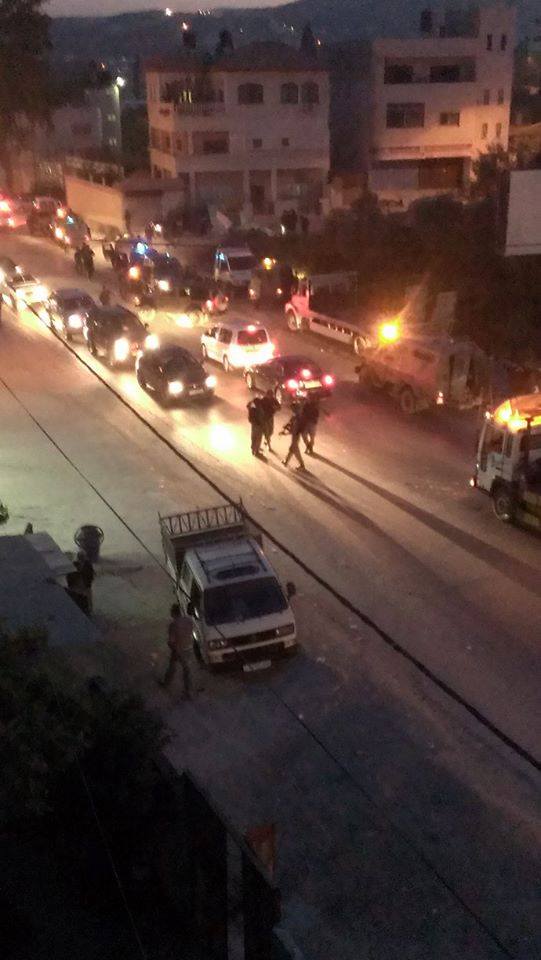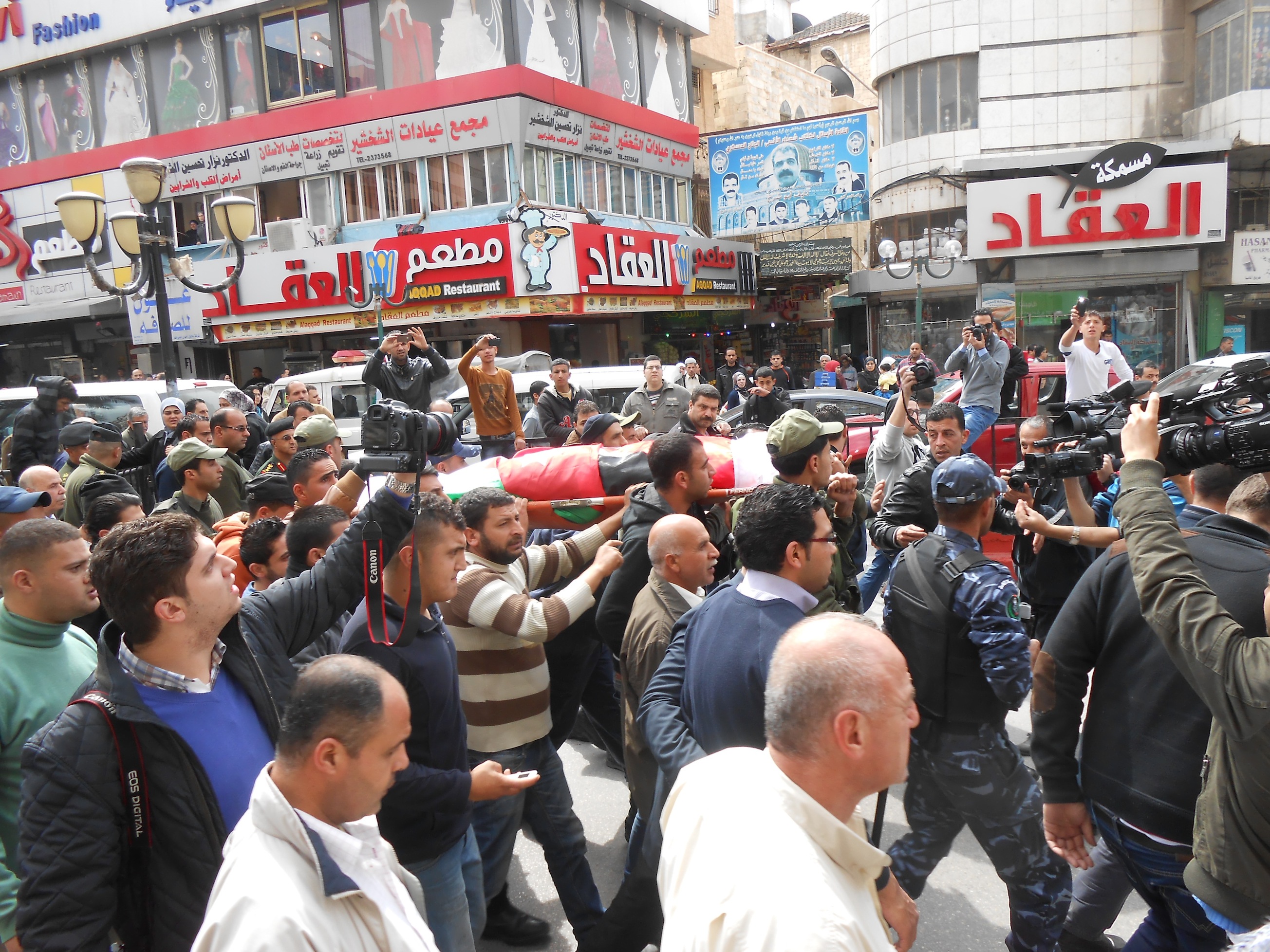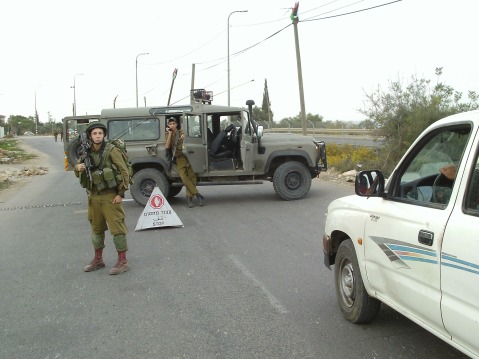Tag: Nablus
-
One man shot and arrested by Israeli Border Police in Huwwara village
10th April 2014 | International Solidarity Movement, Nablus Team | Huwwara, Occupied Palestine On Sunday 6th of April, a 35-year-old Palestinian man was shot with live ammunition and then arrested by an Israeli Border Police Officer. This was after the man had thrown a Molotov cocktail against a passing military jeep on the main street of Huwwara,…
-
Palestinian judge assassinated by Israeli soldiers at Allenby bridge border
13th March 2014 | International Solidarity Movement, Nablus Team | Nablus, Occupied Palestine On Monday March 10, Raed Zeiter, a 38 years-old judge originally from Nablus, was assassinated by the Israeli forces at the Allenby Bridge Border. The man, who has been working in Amman since 2011, was going out of the bus to pass the…



